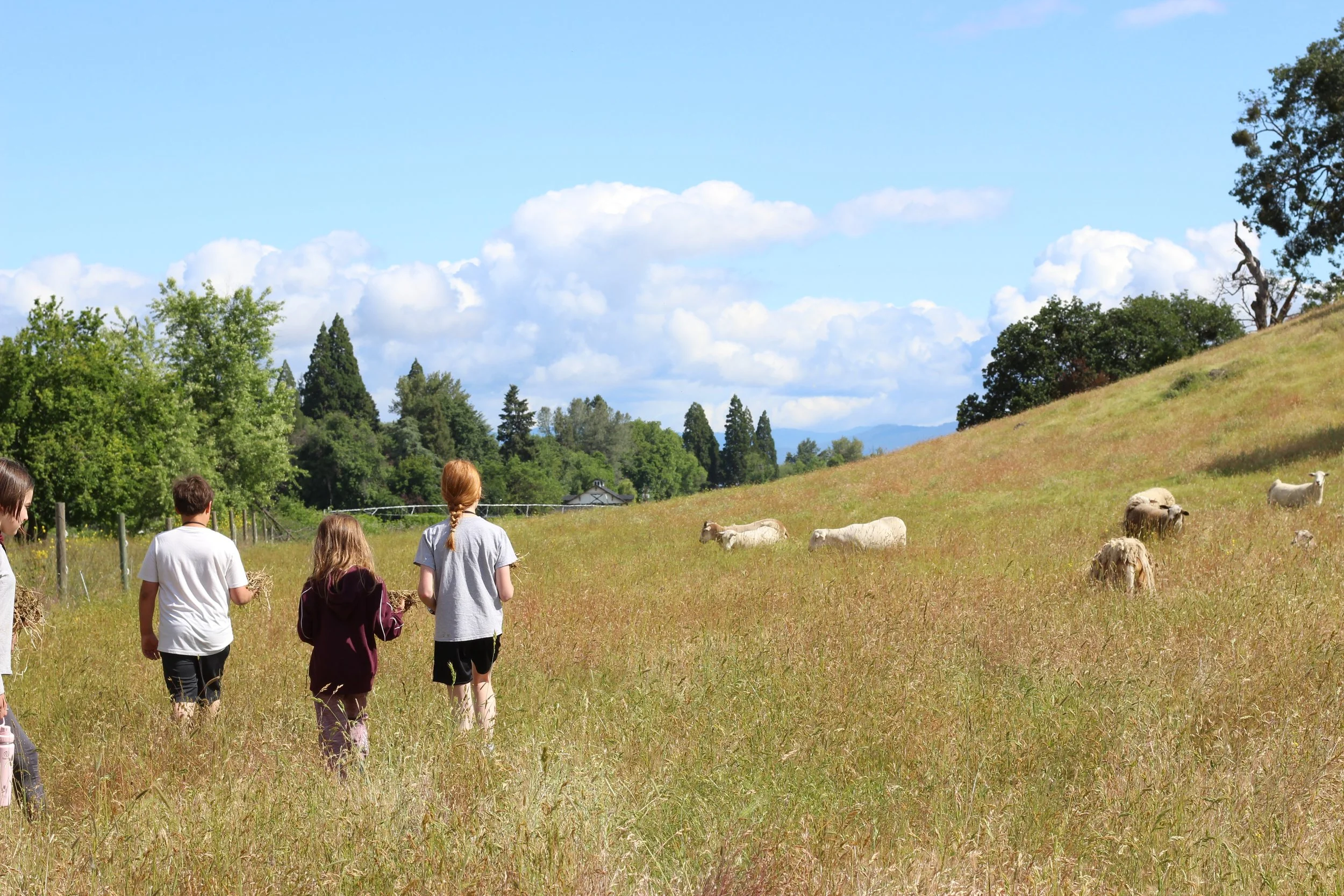How to Prepare for Your Spring Exploration Field Trip
We are so excited to have your class visit us out on the farm for a Spring Exploration field trip! In preparation for your upcoming visit, we ask that you read through this information carefully.
Farm Visit Structure
Your Spring Exploration leaders will meet your group when you arrive on the farm for introductions, orientation to the site, a review of the guidelines and the agenda. Then we will split into two groups. Please instruct parents to join a group and stay with that group as we move through different activities. Both groups will have an RVF2S leader to instruct your group, please help keep students focused and remind them of the guidelines when necessary. Students will have a chance to explore the farm in the spring using all five senses and taste produce from the field.
*If you are scheduled for a field trip to Hanley Farm, your students will also have the opportunity to interact with the sheep on the farm.
**For groups with younger students, if you would like to take a 10 minute break during your field trip to use the restroom or have a quick snack, please tell your RVF2S leaders at the beginning of your field trip.
Chaperones
If you are able to provide chaperones for your trip, that is much appreciated! There is no limit to the number of chaperones you can bring.
Transportation to the farm
You are responsible for booking your bus for this field trip. Access to the farm is only permitted on the day of your field trip. There is plenty of parking for cars and busses at the farm.
come prepared/what to bring
Weather-appropriate clothing, dress in layers, sturdy shoes or boots (closed-toed shoes are required)
Snack/lunch to enjoy before or after your field trip if necessary (younger groups can request to take a snack break during your field trip)
Trash bag to collect any trash from your snack/lunch. There are no trash facilities at the farm.
Water bottles
Name tags for each of your students (having them color coded by group is helpful)
Have students divided into 2 even groups before you arrive
Make sure you have a signed permission form for each student (if you are visiting The Farm at SOU, adult waivers are also required for teachers and chaperones)
Rogue Valley Farm to School Guidelines
Rogue Valley Farm to School coordinates with local farms to allow students to visit a working farm. We have agreements with each site that must be honored to ensure continued program availability. These guidelines have been developed with the safety of the children and the farmer’s crops in mind. We will review the following rules required of each visitor to all of our farm sites when your class arrives. They are:
Watch where you step - even the smallest foot can damage seedlings and irrigation tubing.
Ask before you pick anything - children will have the opportunity to harvest, but need to wait for instruction.
Stay with your group - sometimes activities are spread out over a large area and we don’t want anyone getting lost.
Respect the people, the farm and the food - tools are to be used with care and for their intended purpose. The produce is to be eaten and should be treated gently.
Pack it in, pack it out - We encourage you to bring snacks that can be composted at the farm, however if you do bring snacks in plastic packaging, please make sure you and your students are prepared to take any trash away. You may want to bring a trash bag to accommodate any waste you will need to bring back to the school.
Seasons on the farm
We will be learning about seasonal activities on the farm as well as tasting fresh spring veggies. You can prepare your students by discussing the importance of local agriculture as well as discussing how farmer's jobs change with the seasons.
Fall is a busy time of harvesting summer fruits and vegetables and planting cool weather crops, like leafy greens. Many of the plants in the field are at the end of their lifecycle.
Spring is the time to plant summer fruits and vegetables and harvest cool weather crops, like leafy greens. Many of the plants in the field are at the beginning of their lifecycle.
If you have any questions or concerns about your field trip, don't hesitate to contact us!

